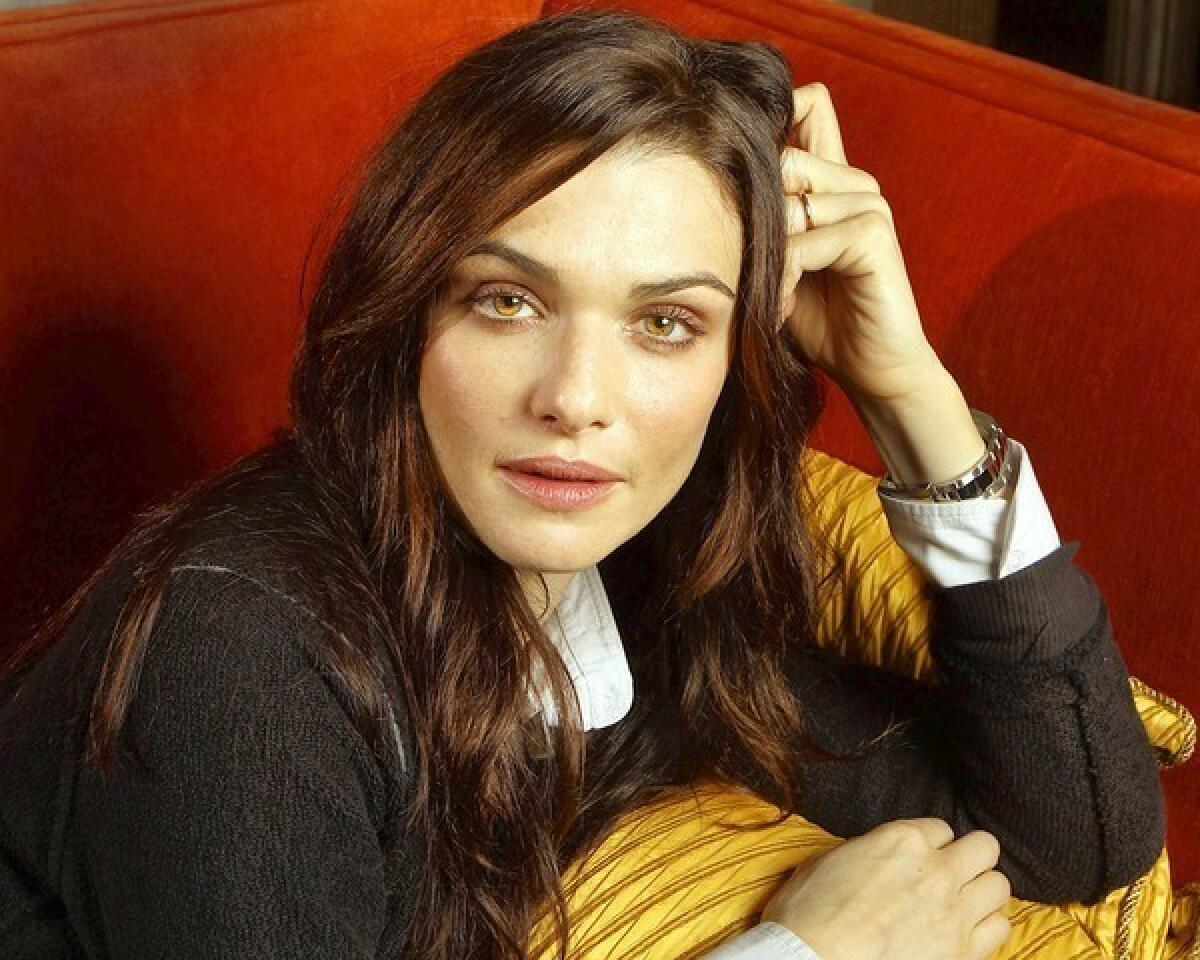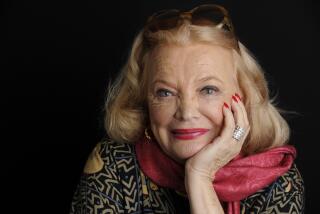How Rachel Weisz put depth in ‘Blue Sea’ performance

It’s London in the early 1950s. In a neighborhood still scarred from the Blitz, a beautiful woman of about 40 sits numbly polishing her lover’s shoes in their grim apartment. She has chosen between the devil she knows — a safe, luxurious life with her older, dull husband — and the deep blue sea: an explosive affair with a younger, unstable Royal Air Force veteran. As she discovers that the younger man will never love her as she does him, she finds herself drowning.
“They’re making small talk at the end of the relationship; he’s taking his bags and leaving,” says Rachel Weisz, who was nominated for her performance as “The Deep Blue Sea’s” Hester by the London Critics’ Circle and the Evening Standard. She says that when she saw the scene herself, “I could see that I had just — I think I was meant to say a line and I just kind of went. The thought of saying goodbye to him was so impossible … [director Terence Davies] stayed on it. He didn’t cut away. It’s a moment when she’s just lost. And I was lost. I didn’t know what I was supposed to be saying or doing.
“Oftentimes those moments, they do away with. They cut them. Terence just stayed on Hester. He could see what was happening.”
As adapted and directed by British independent filmmaker Davies (“Distant Voices, Still Lives”), the film version of Terence Rattigan’s heralded 1952 play is, unlike that particular scene, largely a study in restraint. Having finally awakened to heights and depths of erotic love she had never imagined, Hester is a woman on fire. Yet the smoke is mostly contained.
“There are no hand-held cameras. It’s very static and controlled. And I was very controlled by the camera and the situation,” says the actress, who won an Oscar for playing the unpredictable spitfire Tessa in 2005’s “The Constant Gardener.” “The grammar of the film was like the 1950s; I couldn’t wander around. When my husband finds out I’m unfaithful and I’m on the phone, [Davies] was, like, ‘I want you sitting there, with your back to the camera.’ I had imagined running around the room, crying — that’s how I felt. I felt volcanic. ‘You just sit there and look over your shoulder.’ I went, ‘I have to sit here for the whole … scene?’ ‘Yes.’
“I couldn’t believe it. But that’s the cocktail of the film, I think. I’m all for an Adrian Lyne sweaty sex scene as well, but there’s something about the marriage of those two — the constraint plus the volcano — that’s interesting.”
PHOTOS: Celebrity portraits by The Times
The project wasn’t necessarily the most natural fit for Weisz, who says, “I wasn’t not a Rattigan fan — I’d sort of missed that day in school — I’d never read a Rattigan play or seen one.” Still, when Davies sent her the script, she fell for the character and the “really fascinating exploration of a woman falling in love, who’s completely out of control. She loses all her dignity, all her pride, kind of makes a fool of herself.”
It might have been fertile ground for one of today’s more visceral filmmakers — Weisz’s “Constant Gardener” and “360” collaborator, Fernando Meireilles, comes to mind, with his rangy, hand-held photography.
“It’s much easier for me to work in that way because it’s complete freedom, abandon,” she says. “It’s literal, physical freedom, the camera following you around. It’s more like being in a documentary, hand-held — you go anywhere. It was a lot more challenging — a tonic — with Terence.”
Davies’ formality of style created the tone appropriate for the stolid social mores of early ‘50s London, and for a woman of Hester’s rigid upbringing (her father was a vicar). Even moments that seem ad-libbed, such as Hester’s impulsive lick of her lover’s shoulder in bed, were part of Davies’ design.
“He just said,” she mimics her director’s uncomfortable whisper, “‘I want you to lick his shoulder.’ He had never shot a nude scene, or a sex scene,” Weisz notes of Davies’ discomfort. But the director knew exactly what he wanted nonetheless.
“I thought for a while, ‘Maybe I’ll just keep on my slip.’” She drops again into excruciating sotto voce: “‘Ah, no, I don’t think so …’ He was really embarrassed. He had it in his mind he wanted [audiences] to see their bodies together.”
More to Read
From the Oscars to the Emmys.
Get the Envelope newsletter for exclusive awards season coverage, behind-the-scenes stories from the Envelope podcast and columnist Glenn Whipp’s must-read analysis.
You may occasionally receive promotional content from the Los Angeles Times.











